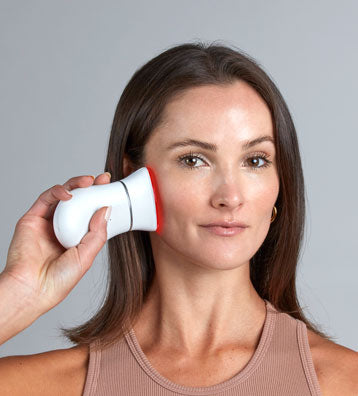Photobiomodulation Laser Applications in Modern Medicine
Wiki Article
Discovering the Efficacy of Photobiomodulation Therapy in Mental Health And Wellness
Have you ever before wondered if there is a brand-new, innovative treatment that could potentially transform the area of psychological health and wellness? In this exploration, we dig into the globe of photobiomodulation treatment and its efficiency in treating mental health conditions. By dropping light on this arising area, we intend to reveal the appealing effects of photobiomodulation treatment and its possible to change the means we approach mental health treatment.The Science Behind Photobiomodulation Therapy
To recognize the efficiency of photobiomodulation therapy in mental wellness, it is crucial to dig into the underlying clinical principles that drive this innovative therapy strategy. Photobiomodulation treatment, likewise known as low-level light therapy, includes the usage of details wavelengths of light to promote cellular feature and promote healing in the body.Furthermore, photobiomodulation treatment has been located to have neuroprotective impacts. It can enhance the production of neurotrophic factors, such as brain-derived neurotrophic variable (BDNF), which promote the development and survival of neurons. This excitement of neurotrophic variables can help restore and repair harmed neurons, possibly resulting in enhanced cognitive function and psychological health and wellness end results.
In addition, photobiomodulation therapy has actually been shown to minimize inflammation in the mind. By modulating the inflammatory feedback, it can reduce the detrimental impacts of neuroinflammation, which has actually been implicated in the growth of different psychological health problems. Additionally, this therapy can boost blood circulation and oxygenation in the brain, boosting overall brain feature.
Potential Advantages of Photobiomodulation Therapy
Currently allow's dive right into the possible advantages that photobiomodulation treatment offers in improving mental health. Photobiomodulation treatment, additionally recognized as low-level light treatment, has actually revealed pledge in dealing with different mental health and wellness problems.Research study has revealed that photobiomodulation therapy can enhance brain function by enhancing blood flow and oxygenation in the mind. Additionally, photobiomodulation therapy has been revealed to have neuroprotective impacts, indicating it can help secure and fix harmed brain cells.

Photobiomodulation Treatment and Clinical Depression
One major advantage of photobiomodulation therapy is its capacity to substantially lower signs and symptoms of clinical depression (photobiomodulation). Clinical depression is an usual psychological health and wellness condition defined by persistent feelings of unhappiness, loss of passion or pleasure in day-to-day activities, and changes in cravings and sleep patterns. Typical therapy options for clinical depression consist of medication and psychotherapy, yet photobiomodulation treatment uses a promising option
Photobiomodulation therapy includes the use of low-level light therapy to stimulate mobile feature and promote recovery. The treatment functions by boosting blood flow and oxygenation to the mind, which can enhance state of mind and reduce depressive symptoms. Study research studies have actually shown that photobiomodulation treatment can efficiently minimize signs of clinical depression, consisting of low state of mind, fatigue, and lack of motivation.
One research study released in the Journal of Affective Disorders discovered that participants who received photobiomodulation treatment experienced a substantial decrease in depressive signs and symptoms contrasted to those who received a placebo therapy. Another research released in the pbm light therapy Journal of Medical Psychiatry showed that photobiomodulation treatment was effective in lowering symptoms of clinical depression in patients with treatment-resistant clinical depression.
Photobiomodulation Treatment and Anxiousness Problems
There are several ways in which photobiomodulation therapy can effectively alleviate signs of anxiousness problems. By raising the levels of these neurotransmitters, photobiomodulation therapy can aid to stabilize the mind chemistry and relieve anxiousness signs and symptoms. On the whole, the usage of photobiomodulation treatment in the treatment of anxiety conditions shows promising results in reducing symptoms and boosting the top quality of life for people having a hard time with stress and anxiety.Future Research and Implications
To better discover the effectiveness of photobiomodulation treatment in mental health, future study must focus on its long-term effects and possible applications in numerous psychological disorders. While the existing proof suggests encouraging results in reducing symptoms of anxiousness, anxiety, and cognitive decline, it is crucial to explore the sustained advantages of this treatment over a prolonged period. Long-lasting studies can help determine whether the favorable effects linger beyond the therapy period and whether the treatment can avoid regression or reoccurrence of symptoms.Furthermore, future research study should intend to check out the possible applications of photobiomodulation therapy in various other psychiatric conditions such as schizophrenia, bipolar condition, and post-traumatic stress condition. Examining the performance of this treatment in diverse psychological health problems would offer an extra comprehensive understanding of its restorative possibility and expand its scientific utility.
Moreover, it would be advantageous to discover the optimal treatment specifications for photobiomodulation treatment. photobiomodulation laser. This includes figuring out the ideal dosage of light, the duration and frequency of sessions, and one of the most efficient wavelengths for various mental health conditions. Comprehending these criteria would certainly aid maximize the restorative outcomes and guarantee standard procedures for scientific technique

Final Thought
In final thought, photobiomodulation treatment reveals assurance as a possible therapy for mental health disorders such as anxiety and anxiety. The science behind this therapy suggests that it can efficiently modulate mind task and promote neuroplasticity. While more study is required to fully understand its efficacy, the possible advantages it provides make it an exciting location of examination for future mental health treatments.Photobiomodulation treatment, additionally recognized as low-level light therapy, involves the usage of particular wavelengths of light to stimulate mobile function and promote recovery in the body. Photobiomodulation therapy, additionally known as low-level light treatment, has revealed assurance in dealing with various mental wellness conditions.Photobiomodulation therapy includes the use of low-level light treatment to stimulate mobile function and advertise healing.To additionally explore the efficacy of photobiomodulation treatment in mental wellness, future research study needs to focus on its lasting impacts and possible applications in different psychiatric problems.In conclusion, photobiomodulation treatment reveals guarantee as a possible treatment for psychological health conditions such as anxiety and anxiousness.
Report this wiki page